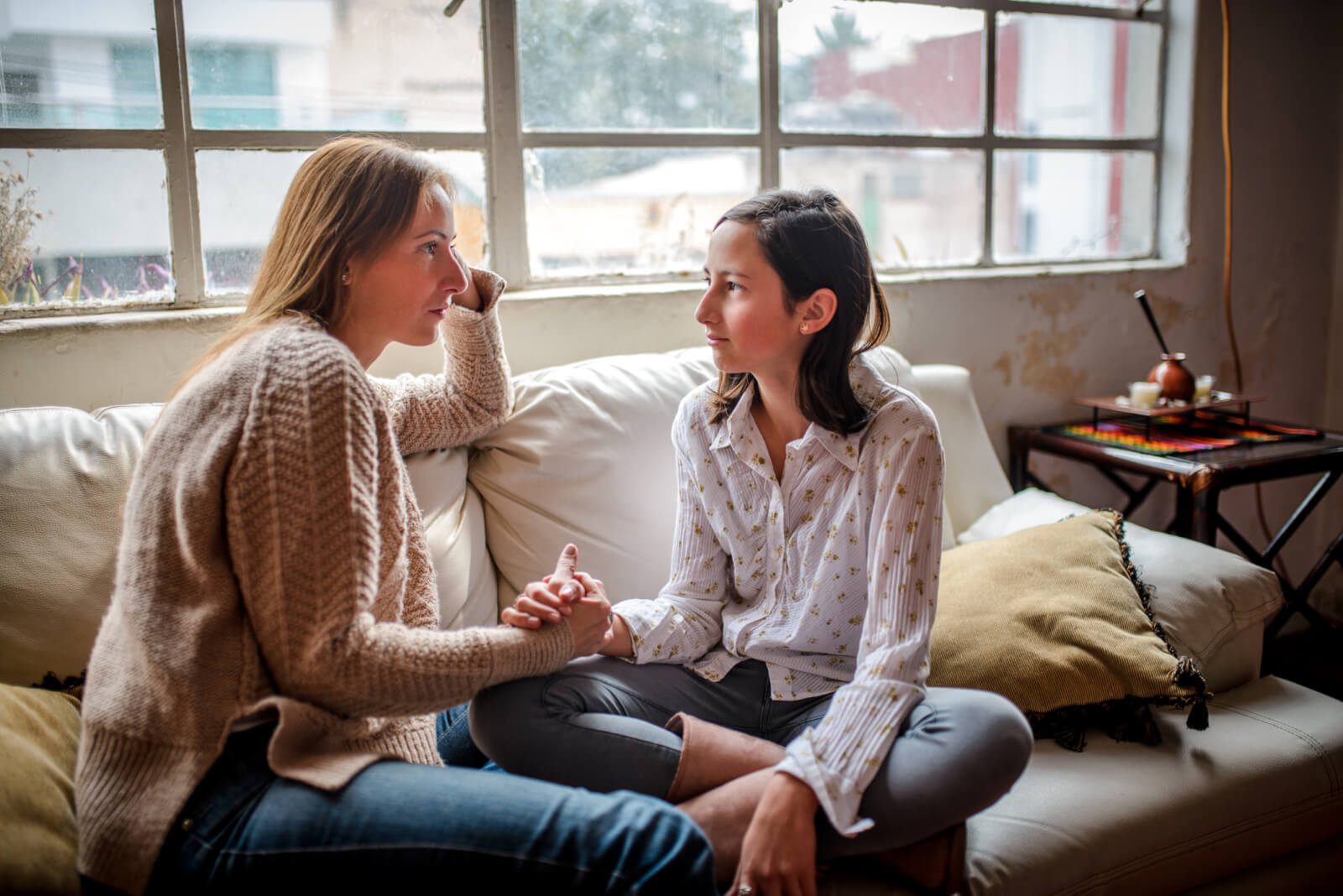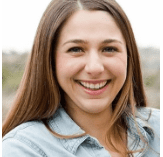
Moms: The “Period Talk” Is About So Much More
“We need to know about our bodies, these changes we’re going through, and no one will talk to us about these things,” said the tearful young teen girl at the podium during a recent library board meeting in my small, rural Texas town. My husband and I had gone to the meeting to debate the appropriateness of a particular book’s presence within the children’s section, and the comments made by our fellow citizens over the course of two hours were eye-opening. I left the meeting both encouraged by seeing the democratic process in action, and dismayed at the comments of a few teenage girls (in particular), clearly hungry for knowledge and affirmation of their bodies, who felt they could only find these things within the pages of a controversial, sexually-explicit book–and within various sexual and gender “identities.”
The book in question–a graphic novel-style memoir–deals with mature themes about gender identity, puberty, body image, sexuality and more, and the female narrator’s misadventures and discomforts with all the above. And, because it is a graphic novel, there are pictures to disturbingly, explicitly, depict it all.* Yet the tearful young teen at the podium, who identified herself as “a pansexual, and a member of the LGBTQ community,” spoke very passionately about why she felt this book was necessary to remain in the library, right there in the children’s section. What she clearly didn’t know, and what I so wished I could tell her (and her mother!), was that there are resources for her to learn everything she needs to know about her body in an age-appropriate, respectful, fact-based way. Resources that will contextualize the jarring experience of puberty, periods, and more, rooted in an affirmation of her dignity and goodness as a woman–a goodness that exists “apart from the ability to excite pleasure in others,” as a friend of mine put it when she rose to speak during the meeting.
In other words, what I learned most from the meeting was this: We leave our pre-teen and teen daughters in the dark about the changes they experience in their bodies, minds, and hearts during this pivotal time not only at our own peril, but theirs.
Now, I know that for moms of preteen or teenage daughters, the mere thought of the “period talk” can feel incredibly daunting. No mom truly wants to leave her daughter in the dark, but many fear saying too much, too soon, or simply saying the wrong thing. These fears can leave some moms nervous enough that they simply hope schools step up and do the job, instead. But regardless of where your daughter goes to school, do you really want her teacher to be the one to guide her through this pivotal transition to womanhood– forming how she’ll think about her body, her cycles, and her fertility, possibly for the rest of her life?
I know for a fact that these thoughts weigh heavily on so many moms’ minds, because we asked them about it when developing our Mothers of (Pre)Teens online video course at Natural Womanhood. Moms told us how they were made to feel “dirty” or “shameful” when it came to starting their own periods, and how they didn’t fully understand why their bodies and emotions were changing in such drastic ways during puberty. They longed to be able to ask someone they loved and trusted about these changes, but too often, the negative feelings and comments about periods and fertility came from their own mothers. That’s why many of the young moms we spoke to were determined to do better by their own daughters–yet they were afraid and unaware of how to start, or where to turn for help.
For all these reasons and more, we created Natural Womanhood’s Mothers of (Pre)Teens course. In over ten years’ of advocacy work in fertility awareness and natural family planning, the Natural Womanhood team has seen first-hand the confidence of women of all ages who understand the ‘what’ and the ‘why’ of their bodies, especially compared to girls and women who are left in the dark about their cycles and fertility. This is especially true of preteen girls on the cusp (or in the midst) of puberty. Those who are properly informed about the science and purpose of their cycles have the context to understand the important changes happening within their bodies, can learn what’s normal and what’s not, and can find the right support for any issues that arise. Most important of all, they learn to see and to understand what these changes mean, that is, how these changes orient their bodies towards the potential of physical motherhood, and come to see those changes as profoundly dignified, worthy, and good.
It’s no wonder, then, that when moms are the ones to provide this important information to their daughters, the mother-daughter relationship blossoms as the lines of communication open and bridges of trust are built. As major proponents of the philosophy that parents are their children’s’ primary educators, Natural Womanhood wanted to empower moms to be the ones to deliver these facts and messages to their own daughters. That’s why our Mothers of (Pre) Teens online video course is for both moms and daughters, equipping moms to teach their daughters the full story about puberty and their cycles, so they can be knowledgeable, confident, and healthy in their wonderfully-made, distinctly female bodies. And we take the guesswork (and hopefully also the fears) away by helping moms know what to say and how to say it, and in an age-appropriate way that communicates the fullness of the truth about the female body, without discussing the mechanics of sex, ways to avoid pregnancy, sexually-transmitted diseases, or gender- and sexual-identities (which, as we all know, are the main focus of most sex-ed programs and books).
Moms, if you want your daughters to be happy, healthy, and confident in their bodies, the “period talk” should be about so much more than that. And if you make the courageous decision to let your daughter know she can find the affirmation and knowledge she needs from you, the person who loves her most in the world (and not from her peers, teachers, social media, or sexually-explicit books at the library), please know that Natural Womanhood’s Mothers of (Pre) Teens online course is there to help.
 Grace Emily Stark is the Editor of Natural Womanhood. Grace holds a M.A. in Bioethics & Health Policy from Loyola University Chicago and a B.S. in Healthcare Management & Policy from Georgetown University. She is a recent alumna of the Paul Ramsey Institute Fellowship at the Center for Bioethics and Culture, and in 2019, she was awarded a Robert Novak Alumni Fund Journalism Fellowship to investigate the negative effects of birth control. Grace and her husband are a certified Teaching Couple for the Couple to Couple League, and reside in Texas with their 3 (soon to be 4!) children.
Grace Emily Stark is the Editor of Natural Womanhood. Grace holds a M.A. in Bioethics & Health Policy from Loyola University Chicago and a B.S. in Healthcare Management & Policy from Georgetown University. She is a recent alumna of the Paul Ramsey Institute Fellowship at the Center for Bioethics and Culture, and in 2019, she was awarded a Robert Novak Alumni Fund Journalism Fellowship to investigate the negative effects of birth control. Grace and her husband are a certified Teaching Couple for the Couple to Couple League, and reside in Texas with their 3 (soon to be 4!) children.